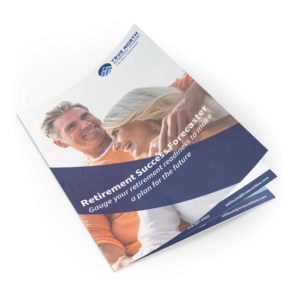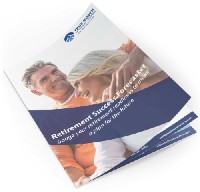Articles and ideas to help you live a fulfilled life!
In this month’s Retirement Roundup, we’ve curated our favorite articles from around the web to help you plan for and live successfully in retirement!
We start off with a new survey showing how the wealthy really feel about their wealth. Why do we accumulate wealth and what drives our feelings about our wealth? Understanding these deeper motivations is critical for good decision making, especially since our relationship with money can be complex and emotional.
We follow that up with “12 Expenses Successful People Don’t Waste Time or Money On”, an article focused on the top wasteful things we should avoid in order to be disciplined and put our hard-earned dollars to better use elsewhere.
Then, we switch gears to an in-depth article on donor-advised funds, and what makes them such a powerful business, estate, and tax planning tool.
Lastly, we send you off into your weekend with a discussion on how to groom the next generation in your family business, and a new Medicare study that highlights the healthcare cost burden on America’s retirees.
Enjoy this month’s installment of the Retirement Roundup!
How the Rich Really Feel About Their Wealth (Financial Planning)
A new WHY of Wealth Survey shows that a majority of those surveyed — 300 people with net investable assets between $1 million and $20 million — ranked peace of mind (65%) and happiness (54%) as the top two motivators for wealth accumulation.
Many people pursue wealth, not for the sake of amassing more money, but for the security and freedom that wealth provides.
Two-thirds cited “living a comfortable life” as the biggest driver, with “providing my family with financial security” (53%) and “financial freedom” (50%) coming next.
While this study helps to clarify motivations for accumulating wealth, many of these responses are somewhat vague. Financial freedom and a comfortable life mean very different things to different people.
One of the lessons of this survey is that it’s important to understand your own motivations for accumulating and preserving your own wealth. Ask yourself: why is having wealth important to me? Is it freedom, security, a sense that you’ve “made it”? Whatever your answer is, continue to ask why and go deeper until you truly understand your own deep motivations around your relationship with your money.
Knowing what drives you will help you make better decisions that are aligned with those deeper motivations.
Understanding your real motivations also helps you weigh the tradeoffs that come with wealth-building. For example, some people in the study regretted sacrificing their family time in pursuing a path of financial independence. Almost 47% the respondents said they would have spent more time with their family had they not been accumulating wealth.
“Regret about lost family time is more pronounced among ultra-high net worth individuals (64%) and business owners (55%) — individuals likely to devote more time to their work,” according to the report.
We are always pulled in many different directions in our lives, with many competing priorities, but understanding why you do what you do will help you to keep those priorities in order and maintain a (somewhat ????) balanced life.
12 Expenses Successful People Don’t Waste Time or Money On (Entrepreneur)
How many of these wasteful money habits are you guilty of? Most financially savvy people are successful because they keep a close eye on their spending and have discipline with their money.
This article provides a list of wasteful purchases that the most discerning among us usually avoid. One of these expenses is lottery tickets. I love a good scratch-it in my stocking at Christmas, but when you do the math, it’s easy to see how regular purchases of lotto tickets can really add up:
“A Powerball ticket costs $2. That might not seem like much, but if you play twice a week for a year – and buy two tickets each time – you’ll have flushed more than $400 down the drain.”
That’s $400 that could have been put toward retirement or college tuition for your kids or grandkids.
Other examples in the article that many of us waste money on: ATM fees, extended warranties, purchasing designer brands, and parking cash in zero or low-interest savings accounts.
And my biggest offense: Impulse buying! I went to Fred Meyer earlier this week for apricots, coffee creamer, and to look at birthday cake designs for my daughter’s upcoming birthday. I ended up spending $56!
I’ll do better next time…
Are Donor-Advised Funds Right For Your Charitable Giving? (wtop)
If you saw our recent video blog post on “How to 10x Your Charitable Giving”, you heard me talk about donor-advised funds. We’re really passionate about donor-advised funds because they provide many of the benefits of a private foundation without the headaches.
When you donate to a donor-advised fund, you receive an immediate tax deduction for the full amount of your charitable donation. You then invest contributions (tax-free!) and distribute funds to charities that you care about most – on your own timetable!
If you want to give donated money to charity 2, 10, or 20 years from now, a donor-advised fund allows you to get the tax deduction today, but grow those assets and have maximum control over the grants to charities.
A donor-advised fund is an excellent planning tool especially when you have a large liquidity event to plan for, like the sale of a business or an investment property. You can also gift appreciated stock or other assets to a donor-advised fund and sidestep the taxes.
Bottom line: Donor-advised funds are a powerful tool, and this article provides an excellent overview of the pros, cons, and misconceptions of donor-advised funds.
If you want to know more, give us a call. We can set-up a donor-advised fund for you with as little as $5,000 to invest in the account, and when you have $250,000 to invest, we can customize the investment portfolio to align with your long-term giving goals.
How to Successfully Prepare Your Family Business for the Next Generation (Entrepreneur)
“Though family businesses are a proud tradition, they are also known for having high failure rates. With each generation of the family, fewer family businesses remain, and by the third generation, only 3 to 5 percent of such businesses still survive.”
That’s a scary statistic, especially for an established business. Failure rates can be very high because future family owners may not have the same passion for the business as 1st and 2nd generation owners do.
In addition, the emotional decisions that are involved in family business dynamics can often cloud the judgment of current owners, causing them to hand the reins to a future generation who may not have the necessary drive and skill set to keep the business alive.
What is a family-run business to do? Here are several considerations to adequately prepare the next generation:
- The advice of trusted outside experts can save your business. These outside experts – CPAs, business attorneys, & financial advisors (ahem ????) – are worth their weight in gold if they tell it to you like it is (not just what you want to hear), and if they always have the best interests of the business at heart.
- Always have a qualified person running the books of the business. Having a competent bookkeeper can make or break a business, so if your greenhorn niece or nephew isn’t qualified, don’t let them handle the books in order to save money and/or give another family member a job.
- Communicate and set expectations for everyone’s role in the business. This should include an open and regular dialogue with all family owners, whether they are involved in the business or not.
- Teach your children well, as Crosby, Stills, and Nash said. Involving children early in the business will help them develop the necessary skills early on. Entrepreneurship camps and learning opportunities outside of the family business should also be encouraged. If children learn the character & qualities required for running a business, they will be better equipped to run the business as adults.
“Commit to these few basic strategies to enjoy the stability, trust, and pride that comes from being part of a family business.”
Despite Medicare, Medical Expenses Bite (Squared Away Blog)
Out-of-pocket costs for retirees covered by Medicare is still substantial, averaging about $4,300/year per person, according to a new study by the Center for Retirement Research.
Although out-of-pocket costs have declined since reforms to Part D coverage, the study highlights the high cost of healthcare for retirees and the financial burdens it places on a large number of retirees in America.
The estimated out-of-pocket health care costs in retirement for a healthy 66-year-old couple is well into the 6 figures, and unless the ever-increasing cost of healthcare slows down, retirees will continue to face more and more pressure on their finances from medical expenses.
Thanks for reading this month’s Retirement Roundup!
Did you enjoy reading this? Do you want more content like this delivered to you each week?
Click here to subscribe to our newsletter >>
Not yet a client? Want to talk about how we can help you reach your retirement goals? Schedule a 15-minute call with us! It’s free – no pressure, no sales pitch.
Click here to schedule a call >>
Hey, there! Thanks for reading all the way to the end. As a thank you for your sticktoitiveness, I have a little bonus for you that I found while poking around the internet recently: 2018 tax rates, schedules, and contribution limits – a handy little quick reference guide to your most pressing tax questions for 2018. In this guide (with all the new tax rules factored in!) you’ll have critical tax planning info right at your fingertips, including:
- 2018 income tax brackets
- 401k, HSA, & Roth IRA contribution limits
- Taxes on corporations
- Income thresholds for capital gains tax rates



